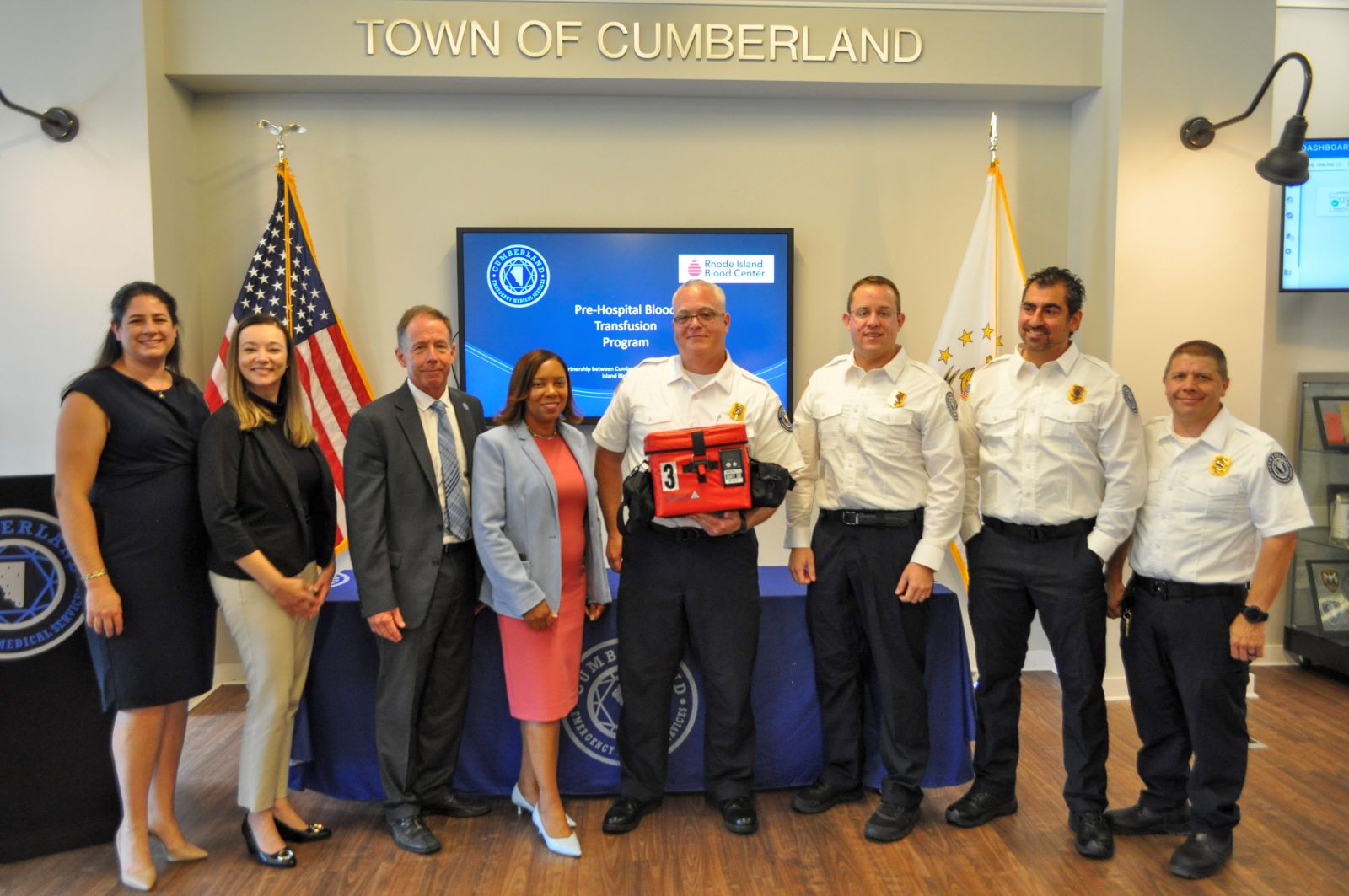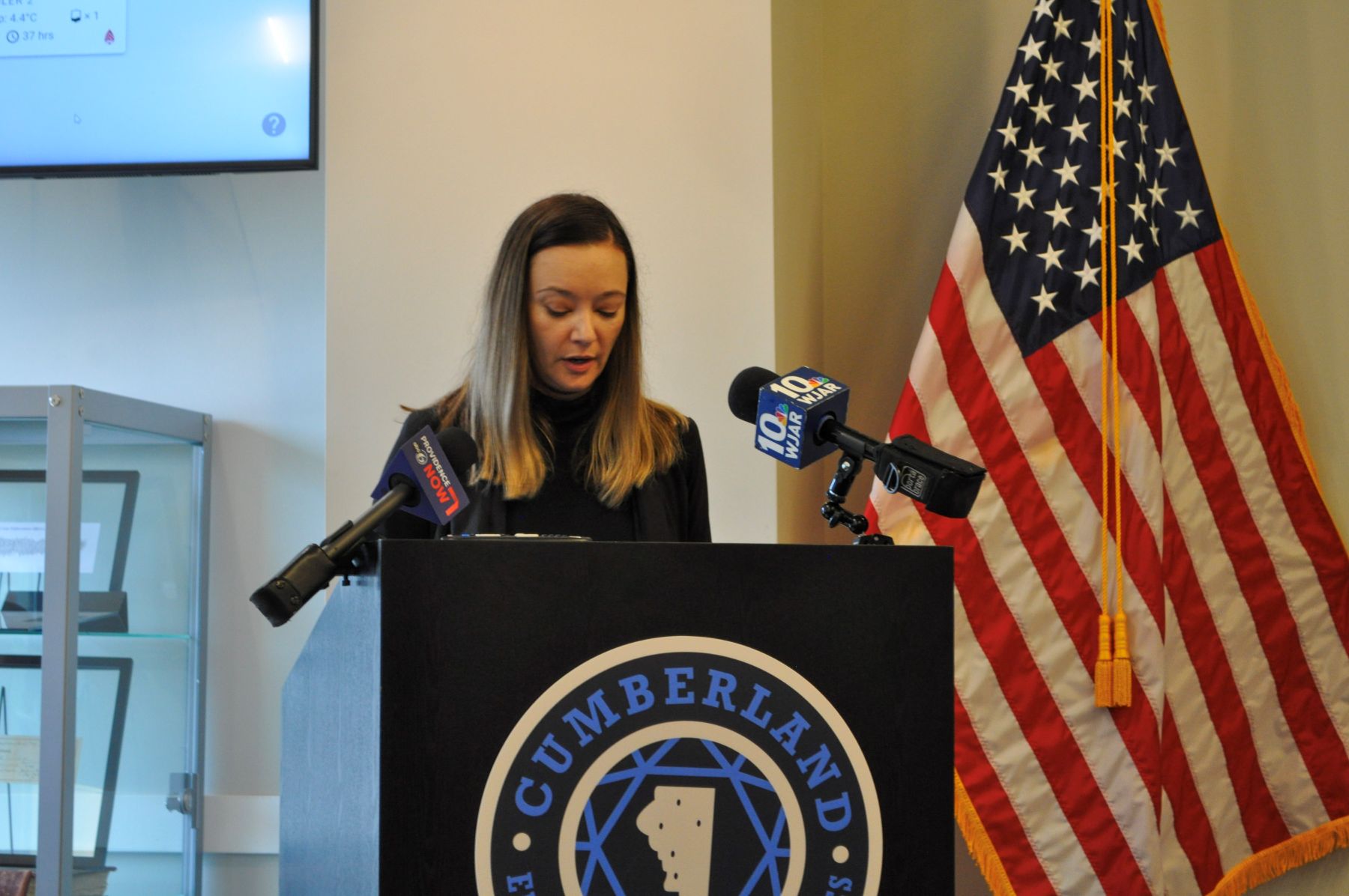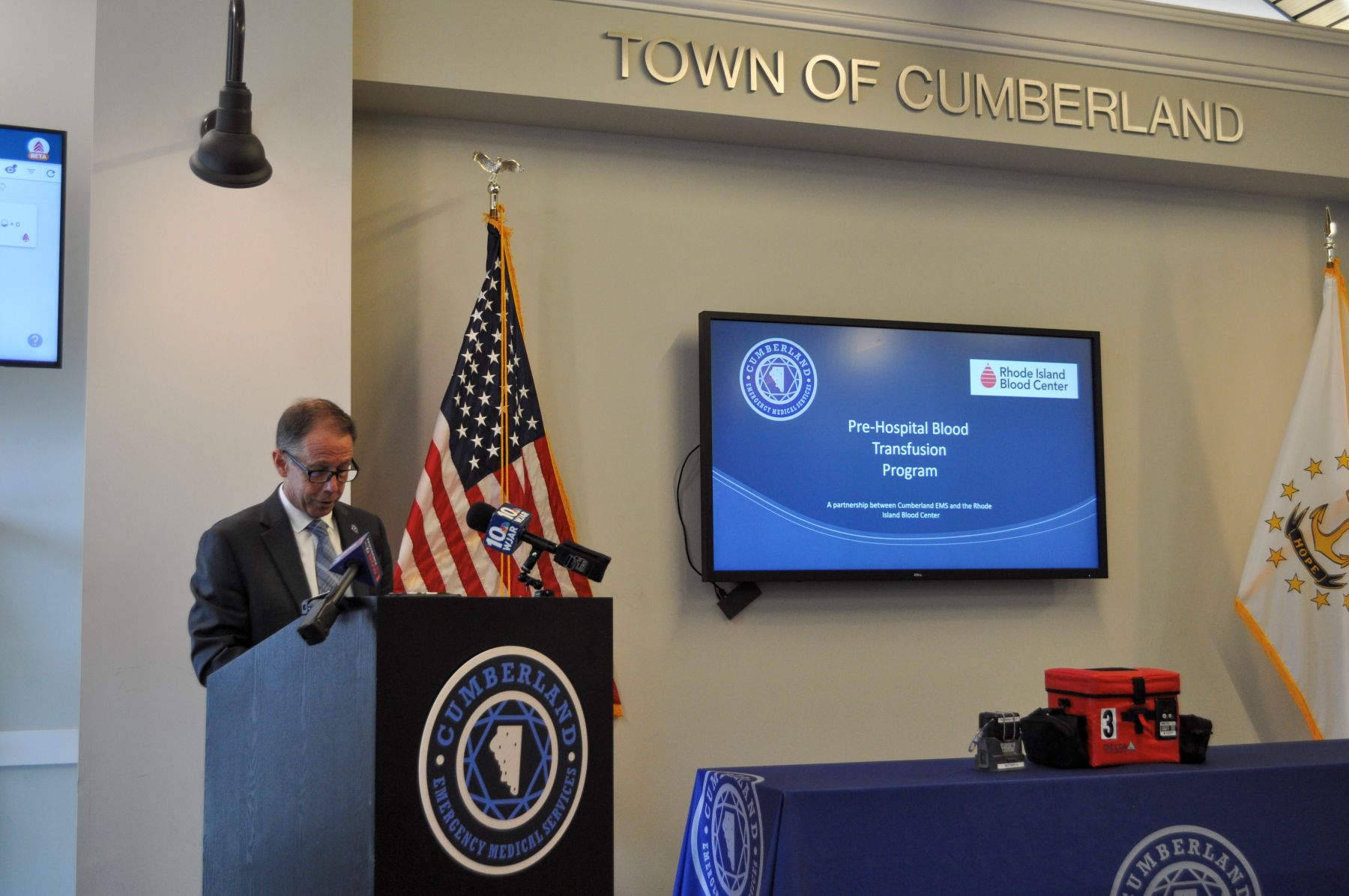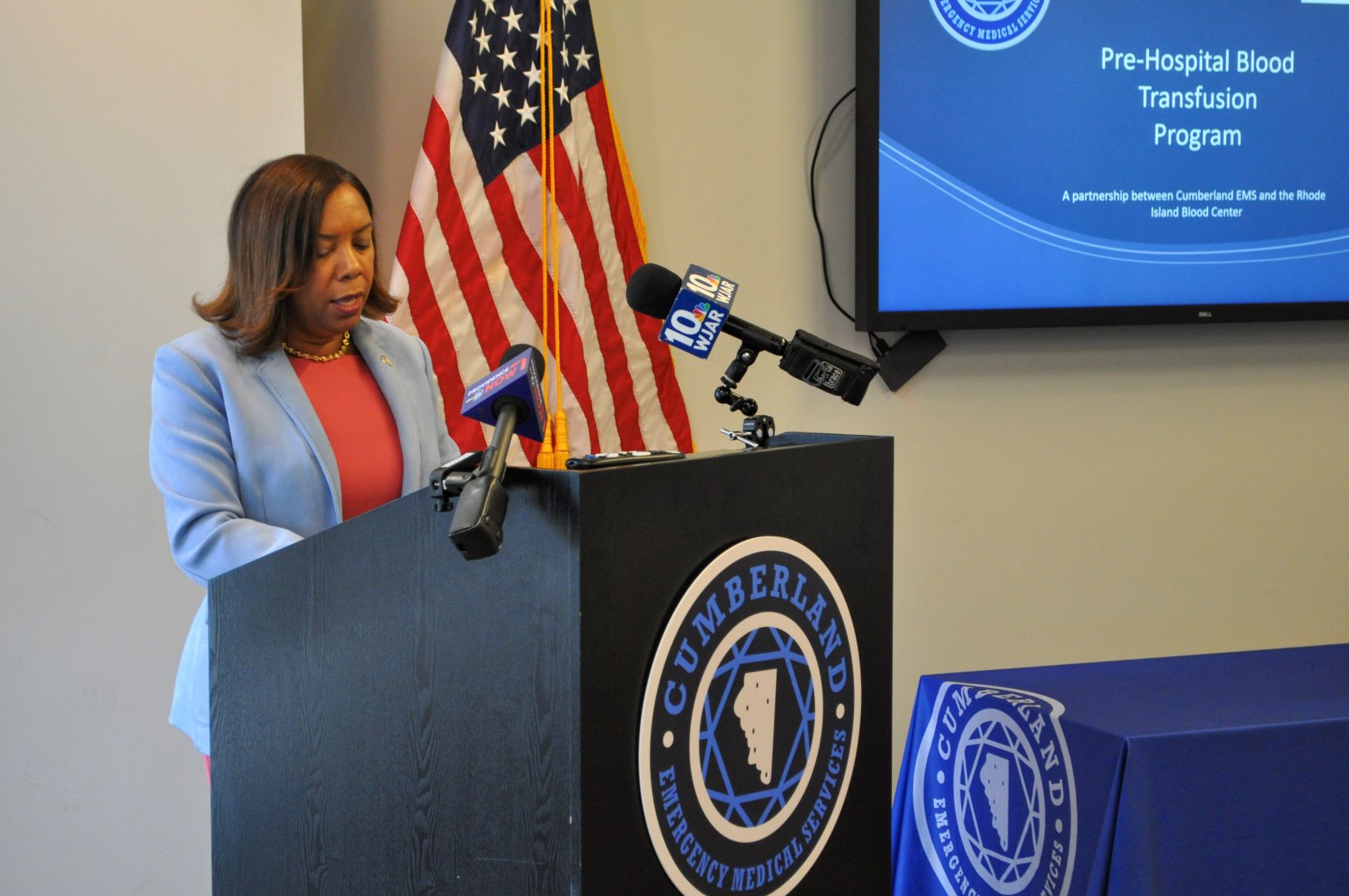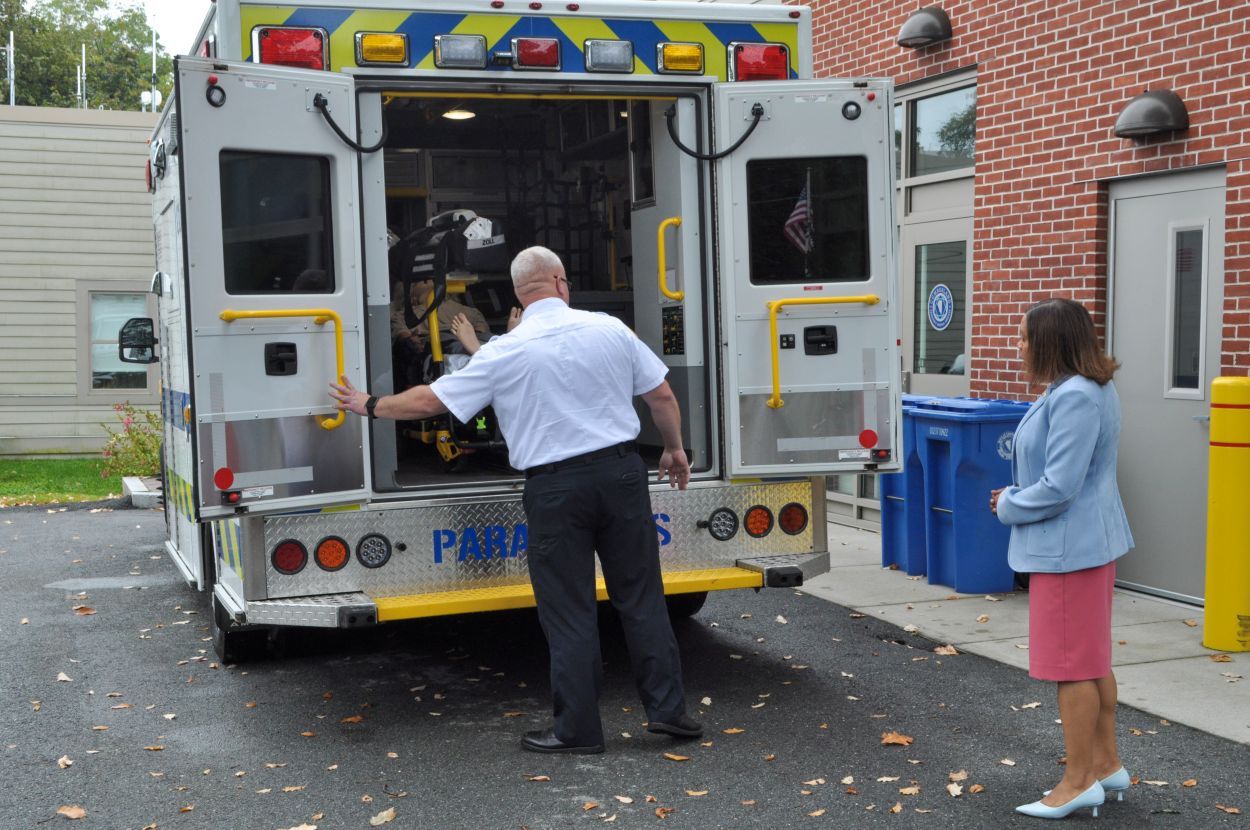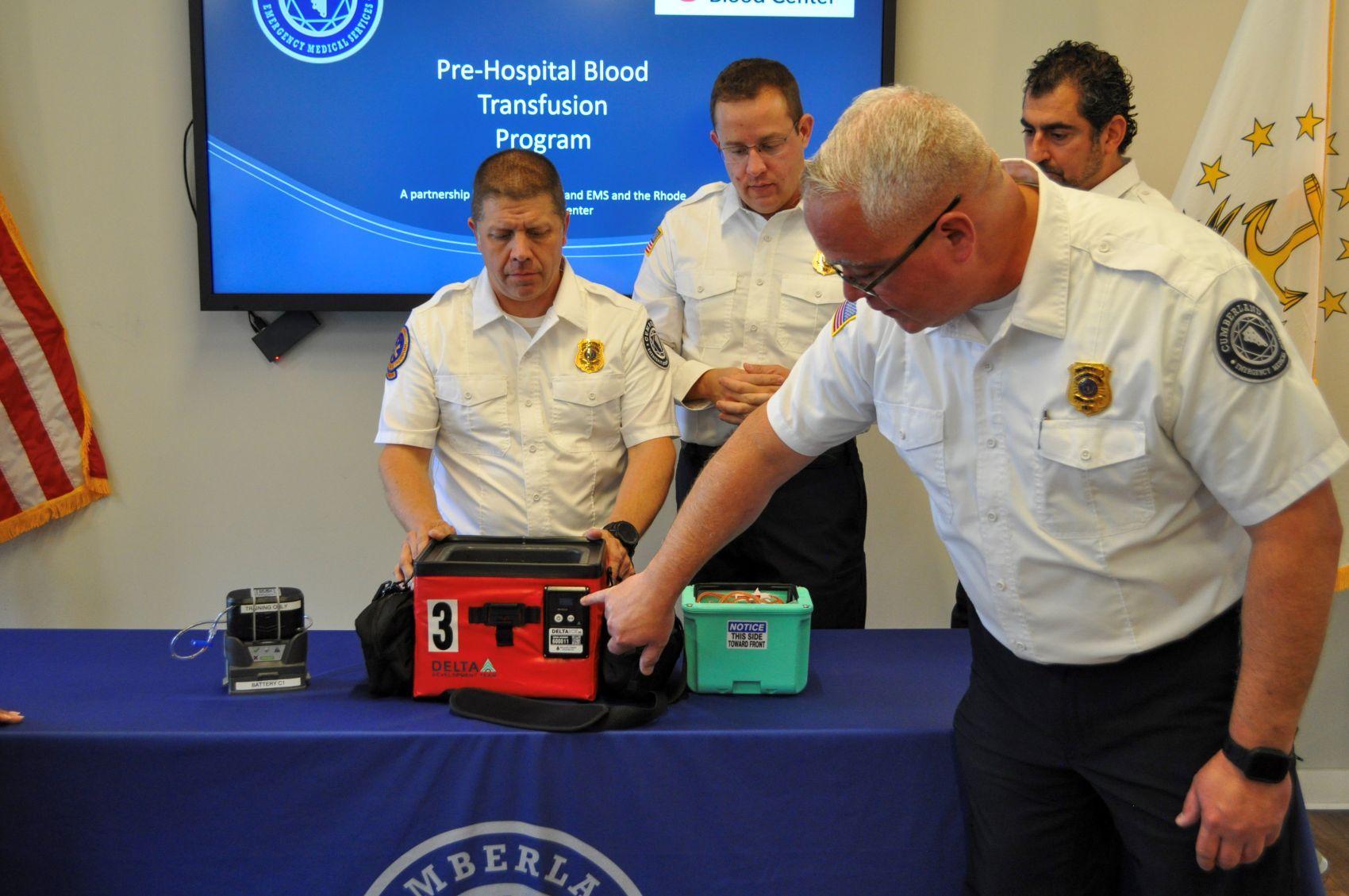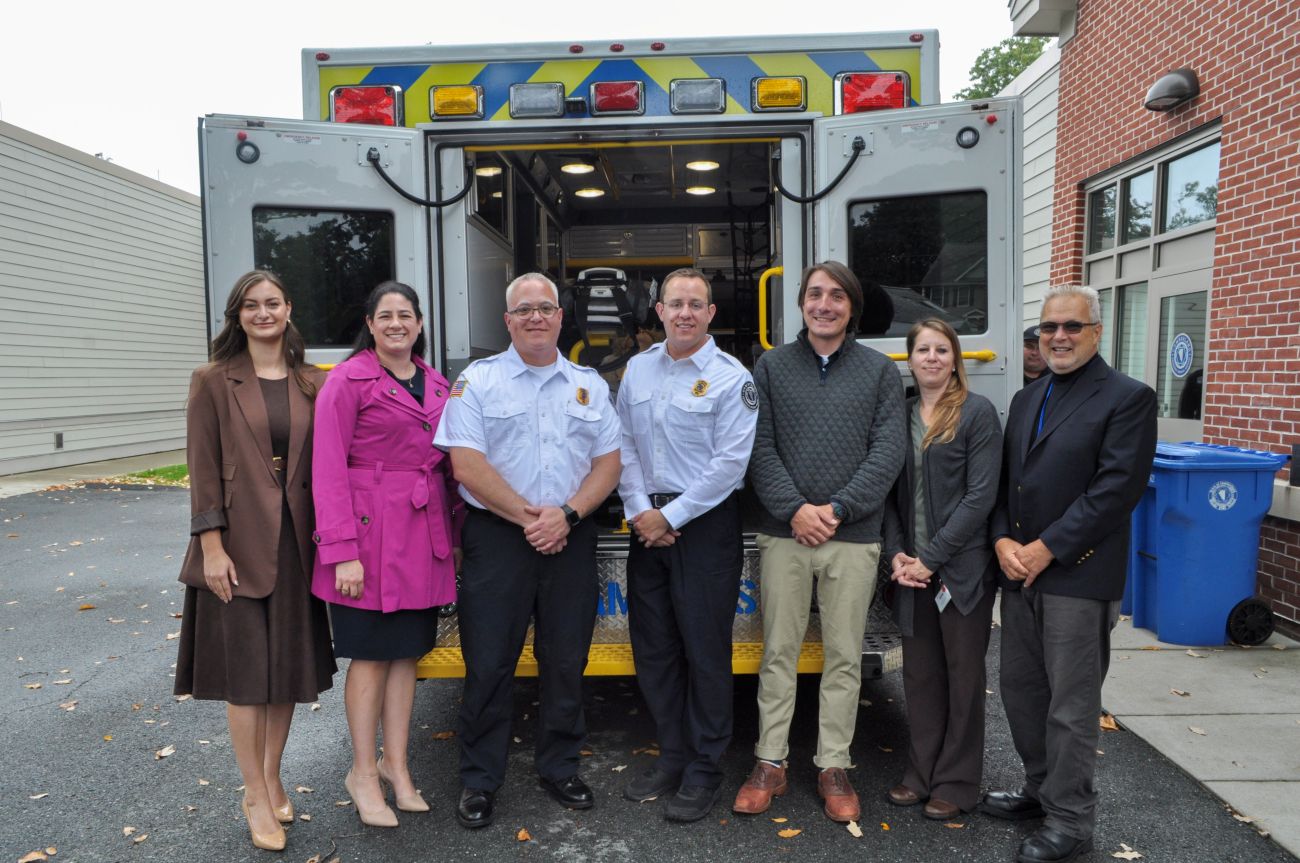Cumberland EMS & RIBC were joined by Rhode Island Lt. Governor Sabina Matos, Cumberland Mayor Jeffrey Mutter, & Rhode Island Department of Health Officials to Launch Lifesaving Program
CUMBERLAND, RI – Today, Cumberland EMS and Rhode Island Blood Center (RIBC) were joined by Rhode Island Lt. Governor Sabina Matos, Cumberland Mayor Jeffrey Mutter, and Rhode Island Department of Health officials at the Cumberland Public Safety Complex to announce the launch of Rhode Island’s first ground ambulance pre-hospital blood transfusion program.
For the first time in Rhode Island, paramedics will now be equipped to transfuse whole blood to critically injured patients before they arrive at the hospital – at accident scenes, shootings, or other traumatic emergencies. “It’s not just trauma patients who will benefit,” said Cumberland EMS Medical Director Nicholas Valentini. “Whole blood can make a difference in post-partum hemorrhage, in gastrointestinal bleeding, in surgical complications, and in a wide range of medical emergencies that we experience in the field each and every day – situations where every minute truly matters.”
Until now, ground EMS crews in Rhode Island could only administer fluids such as saline. Research from the U.S. Military and pioneering EMS systems across the country shows that early access to whole blood transfusions dramatically improves survival rates, especially for patients suffering severe hemorrhage, which is the leading cause of preventable death after trauma.
“This is a historic step forward for emergency medical care in Rhode Island,” said Scott Dessert, Chief of Cumberland EMS. “Being able to provide whole blood transfusions in the field means we can begin lifesaving treatment the moment we reach a patient, not minutes or miles later. This program will save lives, and we are proud to lead the way in bringing this level of care to our community.”
“This partnership is about delivering critical care when every second counts,” said Nicole Pineault, Executive Director at Rhode Island Blood Center. “By supplying whole blood directly to EMS teams, we are extending the reach of our lifesaving mission beyond the hospital walls. This initiative reflects our deep commitment to innovation, public health, and the well-being of Rhode Islanders.”
State and city officials additionally underscored the importance of the program for public safety and the health of communities across the state.
“I want to commend the Cumberland EMS and Rhode Island Blood Center for leading the way in this first-in-the-state initiative,” said Rhode Island Lt. Governor Sabina Matos. “This is a model of what happens when state leaders, local government, EMS programs, and healthcare partners come together and solve big challenges.”
“As mayor of Cumberland, I could not be prouder that our community is leading the state with this groundbreaking program,” said Cumberland Mayor Jeffrey Mutter. “This is more than just an achievement here in Cumberland – it’s a win for Rhode Island as a whole.”
“This initiative is the perfect example of public health in action,” said Rhode Island Department of Health Acting Medical Director Megan Umbriano. “About 2% of EMS agencies nationwide carry blood on their ambulance, and today, Rhode Island joins that group of states proving that statistic can and should change.”
Every transfusion begins with a blood donor. Rhode Islanders can play a direct role in supporting local patients and lifesaving programs like this one by giving blood at Rhode Island Blood Center. To find a donor center or blood drive near you, visit www.ribc.org.
New York Blood Center Enterprises Chief Medical Officer Bruce Sachais, MD, PhD, said it was exciting to see the enterprise’s, state-of-the-art, pre-hospital blood continue to grow.
“We at RIBC, a division of NYBCe, are incredibly proud to partner with the Cumberland EMS team,” Dr. Sachais said. “This partnership builds on similar programs that NYBCe has developed, including programs in Nebraska, New Jersey, and Delaware, which bring this life-saving therapy to patients as part of the first response to their injuries. Providing whole blood (or red blood cells) in the pre-hospital setting is a game-changer for severe trauma patients, allowing us to bridge the critical time gap between injury and hospital arrival, ensuring patients receive immediate, vital support when every second counts. Our commitment to patient safety and quality remains our highest priority, and we have worked meticulously with our EMS partners to establish robust protocols for the storage, handling, and administration of these products to ensure the best possible outcomes for our community.”

